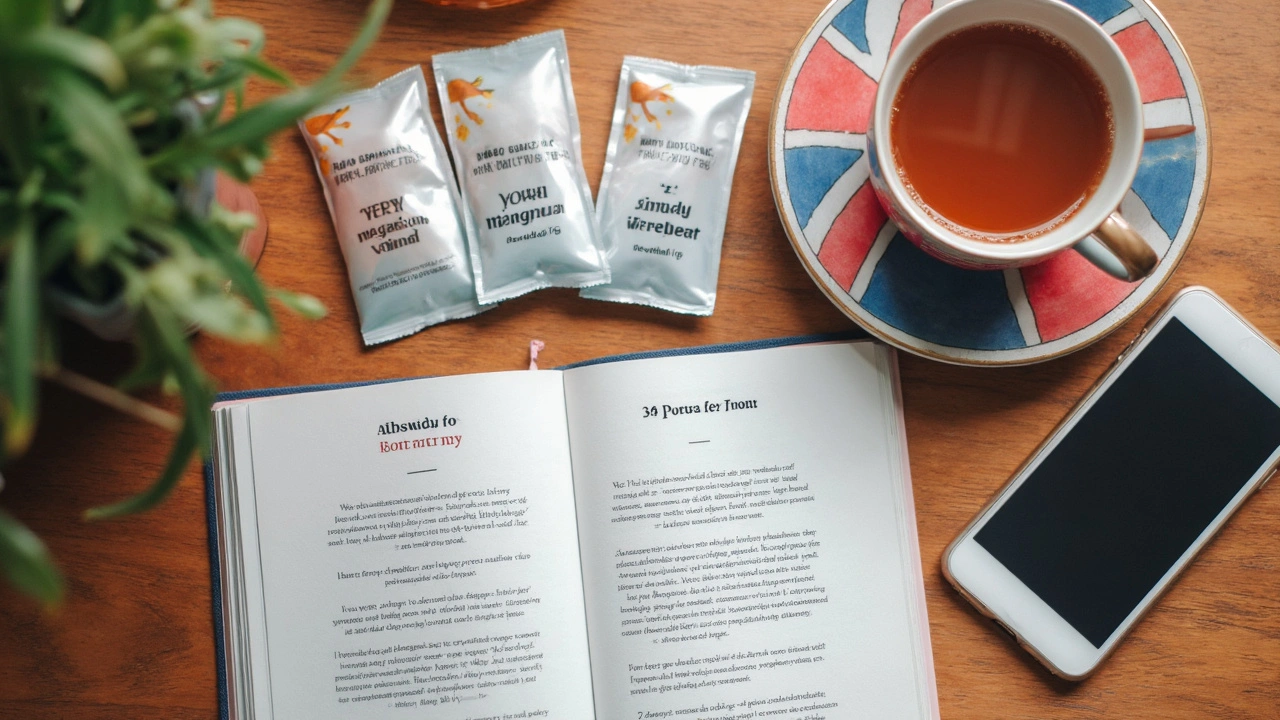Why People Are Ditching Propranolol: What’s Triggering the Search for Alternatives?
If you ask anyone who’s ever taken propranolol, you’ll hear the same concerns pop up: the fatigue, the icy fingers and toes, and sometimes even trouble sleeping. Propranolol’s reputation for cooling down a racing heart or calming nerves before a big presentation is pretty solid, but what happens when the side effects start to get in the way of your life? That’s when people start asking whether they really need to stick with it, or if there are better options for managing anxiety treatment and heart health.
Here in Australia, lots of people take propranolol for social anxiety, public speaking gigs, even for migraine prevention. It’s even used to help folks with tremors or to buffer the body’s stress response. But catch a few stories online or chat with your GP, and you’ll discover the list of side effects can be a deal-breaker. Some folks struggle with exercise because their heart just won’t ramp up like before. Others dislike feeling chilled to the bone, no matter the weather. Stories like these are everywhere: the high-school kid who has to give a speech but feels half-asleep after his morning dose, or the tennis player who can’t catch her breath on court.
You might think you’re stuck choosing between symptoms or side effects, but that’s not the whole story. Turns out, there’s a pretty big world of propranolol alternatives—from newer beta blockers with fewer unwanted effects, to completely different prescription meds, to natural options you probably haven’t considered. So what options are real, and which are just hype? Let’s break down the evidence and get practical about your choices.
Prescription Alternatives: Beta Blockers and Their Less Harsh Cousins
Beta blockers are the broad family that propranolol belongs to, and they’re the classic first stop for symptoms like pounding heartbeats, sweaty palms, palpitations, or severe anxiety before a stressful event. But not all beta blockers work the same way. Some are more selective, which means they focus mostly on the heart and spare the lungs or circulation.
Metoprolol and atenolol are two big players in this category. Metoprolol, for example, is cardioselective—it mostly targets the heart itself. That makes it a great option for people who get the jitters when speaking, but don’t want to feel like their limbs are blocks of ice. Atenolol is similar, and doctors often use it for blood pressure or to manage mild anxiety. Both tend to have fewer reports of drowsiness or cold extremities compared to propranolol, and the risk of low blood sugar is lower. If you’ve got asthma, these are definitely safer choices, since propranolol can make breathing much trickier.
Nadolol plays in this arena too and is sometimes preferred for people who get migraines or who need long-lasting coverage, since its half-life is longer so you only need one dose a day. Bisoprolol is another heart-focused beta blocker that’s considered gentler, especially if you juggle blood pressure problems alongside anxiety.
For people hoping to ditch beta blockers altogether, some get good results switching to medications like clonidine or guanfacine (they’re actually blood pressure meds but help with anxiety too—with a different side effect profile). Buspirone is a non-benzodiazepine anti-anxiety tablet that’s not addictive and won’t cause drowsiness the way some older drugs do. It doesn’t act instantly, but folks who can wait a few weeks might find their baseline anxiety is just as manageable, minus the beta blocker blues.
Just remember, any medication switch requires checking with your doctor, especially if you have heart or blood pressure issues. Changes in medication can affect your heart rhythm, so always make the transition with professional oversight.

The Real Deal on Natural Propranolol Alternatives
If you’re wary of swapping one pill for another, natural remedies might look like the safer play. Practically every pharmacy in Adelaide is packed with bottles labeled “stress relief” or “heart support,” but how much of that is actually helpful? Let’s get real—quality scientific evidence is a bit patchy, but some options are worth discussing.
L-theanine is a standout. This amino acid, found in green tea, can smooth out stress without causing sleepiness. A double-blind placebo study in 2016 showed that 200mg of L-theanine could lower anxiety in adults facing stressful tasks, with no sedative effect. That’s incredibly good news for anyone who wants to be calm but alert. You can get it as a supplement or drink matcha tea for a bit of a boost.
Magnesium is another interesting player. Not only does it help regulate your heartbeat, but there’s pretty decent evidence it calms the nervous system. While a lot of people down here don’t hit their recommended magnesium targets, just making sure you get enough from food (think pumpkin seeds, dark chocolate, almonds) or a basic supplement can make a difference if you’re twitchy or struggle to fall asleep.
Valerian root and passionflower have a long history in herbal anxiety treatment. Some studies suggest small reductions in anxiety, and they’re common in over-the-counter sleep aids. These tend to work best for mild nerves—not full-blown panic situations—but worth considering if you want to reset your stress baseline in the evenings.
Even more mainstream now is CBD oil (where legal, check with your pharmacist), which interacts with your body’s endocannabinoid system. Australian research in 2023 showed that CBD could reduce anxiety symptoms after four weeks compared to placebo, especially in those with social anxiety. No high, no sedation, but a gentle push back from the edge.
And don’t underestimate food. Omega-3s, found in fatty fish like salmon or sardines, actually influence brain chemistry and heart health. Multiple studies from Europe link omega-3 intake to lower rates of depression and anxiety. It’s not a quick fix like a medication, but small habit changes pile up over time for real results.
If you want to go deeper, there’s a solid breakdown of propranolol natural alternatives that covers top natural and prescription choices, with practical comparisons. Worth a look if you’re serious about exploring outside the pillbox.
Tweaking Your Lifestyle: Underestimated Habits That Add Up
Let’s be honest—no alternative works as a magic wand. If you swap propranolol for something else but run yourself ragged, chug coffee, or doomscroll before bed, you’re still going to have trouble with anxiety and heart health. What actually moves the needle is small daily habits you can live with long term.
Here’s where lifestyle hacks start to shine. First off, exercise isn’t just about getting a beach body. Moving your body a few times a week has a direct, measurable effect on heart rate variability—science-speak for how well your heart can adapt to stress. A 2022 Adelaide Uni study showed that walking briskly for 30 minutes, five days a week, cut anxiety scores in young adults by 19%. If high-impact isn’t your thing, even gentle tai chi or yoga can lower both heart rate and stress hormones.
Next up, look at your sleep schedule. Bad sleep is an anxiety amplifier; good sleep is a calming force. Set a regular bedtime, keep your phone out of reach, and try to wake up naturally—your nervous system will thank you. Some people swear by weighted blankets or blackout curtains for an edge.
Caffeine and alcohol are sneaky saboteurs. You don’t have to quit them entirely, but keeping caffeine before noon and skipping that late-night glass of wine will keep your heart rate steadier. It’s boring advice, but caffeinated drinks and alcohol are two of the biggest triggers for heart palpitations in people sensitive to propranolol in the first place.
Breathing exercises sound silly until you’re mid-panic. Box breathing (inhale for 4, hold for 4, out for 4, hold for 4) lowers your heart rate in a few minutes. Sprinkle these sessions throughout your day before stressful events or when you feel your pulse climbing.
If you’re into data, consider a wearable tracking device. Smartwatches can show you patterns between stress, sleep, and habits. Doctors in Adelaide are even starting to prescribe these tools for patients with chronic anxiety and heart issues—imagine fixing your health by actually seeing when you’re stressing yourself out.

When and How to Make the Switch: Tips for a Smooth Transition
So maybe you’re ready to ditch propranolol, but you’re worried about withdrawal, or you’ve heard stories about rebound heart palpitations. Here’s the straight talk: stopping propranolol cold turkey is rarely recommended if you’re taking it daily for heart or anxiety reasons. Your nervous system has gotten comfy with a bit of a brake, and pulling it away too fast can make everything speed up.
If your doctor agrees, the best way is to “taper” the dose. That usually means slowly stepping down your propranolol over a week or two, then starting your alternative—whether that’s a new medication or natural supplements. Side effects are less likely, and you’ll notice if anything feels seriously off before it becomes a big problem.
Some people keep a diary of their symptoms—log your pulse, blood pressure (if you have a home cuff), and when anxious episodes hit. This helps you and your doctor spot trends and figure out what’s working. If anxiety is your main issue, talk therapy or even digital therapy apps can be powerful add-ons to replace some of what propranolol did for you. For those really wanting backup, pair a natural supplement with a structured stress management plan. Mix and match until you find what works.
The reality is, everyone’s body is different. Family history, job pressure, underlying heart conditions—they all play a role. If you’ve had a rough time with one alternative, don’t write off the others. The goal here is more control with fewer trade-offs.
Your doctor, pharmacist, and—believe it or not—regular Aussies sharing their experiences on trusted forums can be some of your best guides. And if you ever get weird symptoms—like chest pain, fainting, or sudden mood swings—get checked out immediately. Better to be safe than sorry.
You can definitely find a sweet spot: the right alternative, teamed with the right habits, can dial down anxiety and look after your heart. No more picking your poison. There's a path to feeling steady—inside and out.


Jennifer Haupt
May 4, 2025 AT 15:42When mapping the therapeutic landscape beyond propranolol, start by aligning the drug’s beta‑1 selectivity with your clinical priorities. Metoprolol and atenolol, for instance, maintain cardiac rate control while sparing peripheral vasoconstriction, which translates to fewer cold‑extremity complaints. If migraine prophylaxis is also a goal, nadolol’s extended half‑life offers once‑daily dosing that can improve adherence without sacrificing efficacy. For patients with comorbid asthma, shifting to a cardio‑selective agent reduces the risk of bronchospasm, a critical safety consideration. Finally, integrating non‑pharmacologic strategies-regular aerobic activity, magnesium‑rich nutrition, and sleep hygiene-creates a synergistic buffer that often allows a lower pharmacologic burden.
NANDKUMAR Kamble
May 4, 2025 AT 16:46While the mainstream narrative pushes newer beta‑blockers as "safer," one must question who benefits from this steady stream of rebranded molecules. The pharmaceutical pipeline often disguises subtle profit motives behind the veneer of reduced side effects, and the data supporting claims about atenolol’s mildness are frequently funded by the same stakeholders that marketed propranolol.
namrata srivastava
May 4, 2025 AT 18:10From a pharmacokinetic standpoint, the differential receptor affinity and hepatic CYP450 metabolism of metoprolol versus propranolol constitute a salient vector for therapeutic optimization. The intrinsic activity of bisoprolol, characterized by its selective beta‑1 antagonism, mitigates the peripheral vasodilatory cascade that precipitates cold extremities, thereby offering a more nuanced modulation of sympathoadrenergic tone.
Priyanka arya
May 4, 2025 AT 19:33Exactly, the same pattern repeats across the board 😐🔍
Loren Kleinman
May 4, 2025 AT 20:56Let’s take a step back and consider why the body reacts the way it does to beta‑blockade in the first place. The sympathetic nervous system is a master regulator of heart rate, vascular tone, and the fight‑or‑flight response. When you blunt that system with propranolol, the immediate benefit is clear: less pounding heart, fewer tremors, and a calmer demeanor. The flip side, however, is that the same dampening can also interfere with the natural rise in cardiac output that you need for exercise or even for ordinary daily activities. That’s why many people report feeling “frozen” or unusually fatigued after a dose. Transitioning to a more cardio‑selective blocker such as metoprolol reduces the impact on beta‑2 receptors in the lungs and peripheral vessels, which can preserve some of that needed physiological flexibility.
Another piece of the puzzle is the role of electrolyte balance, particularly magnesium. Adequate magnesium supports the Na⁺/K⁺‑ATPase pump, which in turn stabilizes cardiac electrophysiology and can blunt the over‑excitation that leads to anxiety spikes. Dietary sources like pumpkin seeds or a modest supplement can be a game‑changer when paired with a reduced dose of a beta‑blocker.
Beyond pharmacology, the lifestyle component is non‑negotiable. Regular aerobic activity, even at moderate intensity, induces favorable heart‑rate variability, which is essentially a read‑out of how well your autonomic nervous system can adapt to stress. A study from Adelaide University showed a 19 % reduction in anxiety scores after a five‑day‑a‑week walking regimen, underscoring that movement is a potent adjunct.
Sleep hygiene also deserves attention. Short, fragmented sleep amplifies cortisol release, which can counteract the calming effects of any medication you take. Establishing a dark, screen‑free environment before bedtime helps reset the circadian rhythm, allowing the body’s natural calming mechanisms to function optimally.
Caffeine timing is another simple tweak: limiting intake to before noon avoids the late‑day sympathetic surge that can trigger palpitations, especially in those sensitive to beta‑blocker withdrawal.
In summary, the optimal pathway often involves a trio: a modest dose of a cardio‑selective beta‑blocker, targeted nutritional support (magnesium and omega‑3s), and disciplined lifestyle habits (exercise, sleep, caffeine control). This integrated approach can provide the anxiety relief many seek without the heavy trade‑offs that led them to question propranolol in the first place.
Sabrina Goethals
May 4, 2025 AT 22:20i totally get what you’re saying, it’s like you gotta mix the meds with real life stuff, otherwise you’re just patchin’ a hole-yeah, sometimes the jargon gets overwhelming, but a simple walk + a magnesium pill can defintely make a big diff, lol.